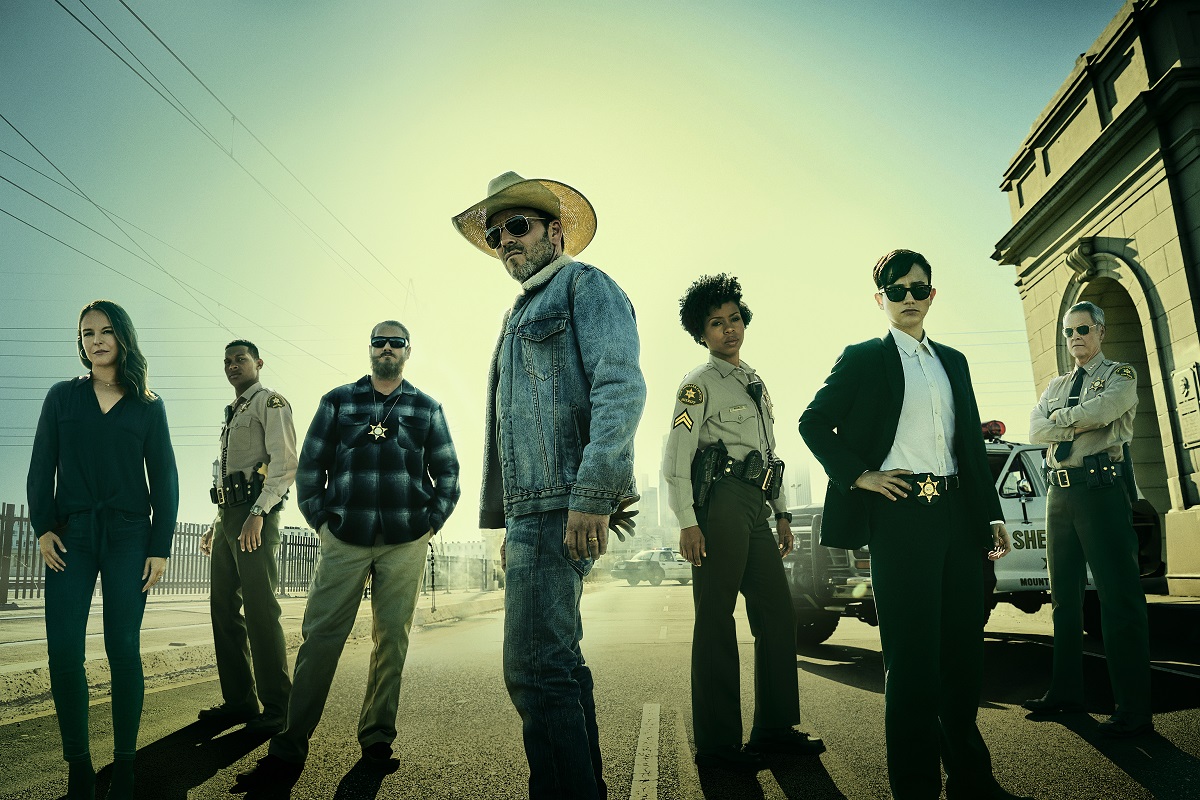The first new network show of the ‘20s, FOX’s “Deputy” leans so hard into its clichés that you almost have to admire it. As a toothpick-chewing, cowboy-hat-wearing lawman from another era, Stephen Dorff’s Bill Hollister literally calls himself “your huckleberry” in the first scene and says things like “yee-haw” without a glint of irony. He is a Marshall Dillon archetype through and through, a character from a Western supplanted into modern Los Angeles. With Dorff’s dramatic range so recently proven in HBO’s “True Detective” and the promise of exploring how bygone law practices could impact a very modern city like L.A., there’s room for something really interesting to happen in “Deputy,” but the creators and writers seem to almost be trying to avoid anything complex, resulting in a show with some muddled politics and thin characterizations. Dorff is at the center keeping it entertaining, and the ridiculousness in some of the plotting to start the series is almost admirable, but this is an inconsistent show in every way, balancing scenes that feel like they want to be a part of a more complex legacy of cop shows like “The Shield” and “Southland” with something more clearly designed as pure Western escapism.

Hollister is the Deputy of the L.A. Mounted Patrol who is suddenly elevated to Sheriff of the city when the man he’s replacing unexpectedly dies. An archaic city law dictates the chain of succession, and while the powers that be try to replace Hollister he decides to completely overhaul the police force. Hollister’s politics are muddy to say the least. “Deputy” often feels like it’s playing up to conservative values about the infallibility of the police force— conversations about use of force being required lead to that sense that the boys in blue can do no wrong, and Hollister literally stops an investigation into complaints against officers—which is a take that will infuriate some people in 2020 given the tense dynamics between the cops and citizens of L.A.
However, “Deputy” also takes some stabs at ICE—Hollister says in the premiere that he wants to protect all of his people, no matter where they came from—and our leading man is totally accepting of his lesbian partner/bodyguard (Bex Taylor-Klaus), who has been assigned to take care of him and be there for the writers to call him on his shit a bit. So it’s not just a pure Ted Nugent-esque take on the conservative Western lawman. Presuming this is intentional writing, Hollister kind of does have an old-fashioned political bent straight out of a Western—all of the people of L.A. regardless of background or politics are his to protect, and if he does have to crack some skulls to do so, then so be it. (That most the skulls he goes on to crack belong to minority characters is another issue. As is the insane plot twist involving one of his officers and kids left orphaned by a shooting in the series premiere.)
What sinks most of the potential to explore interesting subtext in “Deputy” is the actual text that comes out of people’s mouths. Dorff showed how great he can be with the right material last year, but no one can quite sell a line like “Too many save-asses and not enough ass-kickers!” Every other scene seems to be designed for Hollister to go on a rant about the state of his city and the suits above him who have poisoned the good men and women in blue. There’s something attractive about the simplicity of a good man who just needs “a badge, a gun, and what’s in your heart,” but do we need to be reminded of it every three minutes? Perhaps the team, including director David Ayer—a man who loves modern cop stories, having written “Training Day” and directed “End of Watch”—knew that the actual plotting wouldn’t keep viewers from changing channels and so they go back to the cowboy well to keep people engaged. A raid gone wrong in the premiere is followed up with an officer shot in a liquor store—yes, they pull those heartstrings as early as possible—and both plotlines are generic and hard to care about. Shows like “Southland” and “The Shield” knew how to balance their complex characters with episodic narratives and cases-of-the-week that were interesting too. That’s missing here for now.
It may be too early to tell if “Deputy” can pull back the throttle on the anachronisms and yee-haw characterizations to present something more complex from week to week. Dorff is up to the challenge, and there are other interesting performers in the supporting cast, especially Taylor-Klaus, whose character seems to have the best grasp on how things get done and where the city of Los Angeles is going. Given she’s technically deputy to Hollister’s new sheriff in town now, maybe the show’s really about her in the first place.
Three episodes screened for review.












